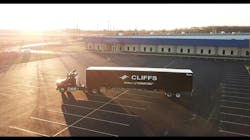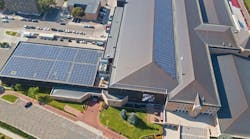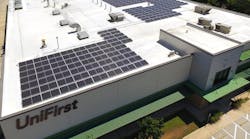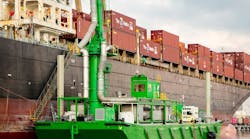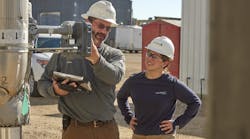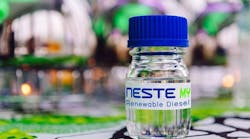Cleveland-Cliffs announced that two of its projects have been selected for award negotiations for up to $575 million in total funding from the US Department of Energy (DOE) to pursue two decarbonization investments at Middletown Works in Ohio and Butler Works in Pennsylvania.
The projects will help reduce greenhouse gas emissions across Cliffs’ footprint, create efficiencies to minimize operating costs, and secure and increase Union jobs.
Federal funding is derived from DOE’s Industrial Demonstrations Program and is provided through the Infrastructure Investment and Jobs Act and the Inflation Reduction Act.
Upon securing the award, the company will replace an existing blast furnace at its Middletown Works facility in Middletown, Ohio, with a 2.5 mtpa hydrogen-ready direct reduced iron (DRI) plant and two 120 MW electric melting furnaces (EMF) to feed molten iron to the existing infrastructure on-site, including the BOF, Caster, Hot Strip Mill, and various finishing facilities.
While Middletown will maintain its existing raw steel production capacity of approximately 3 million net tons per year, it will not use coke for iron production. The EMF technology combined with hydrogen injection in blast furnaces is considered the preferred method by many integrated steelmakers worldwide to reduce carbon emissions.
The facility will be fueled by natural gas, which will reduce current ironmaking carbon intensity by over 50%, a mix of natural gas and clean hydrogen, or clean hydrogen, which will cut current ironmaking carbon intensity by over 90%.
Hydrogen demand from the DRI plant will back the DOE’s Hydrogen Earthshot and Hydrogen Hub initiatives.
The facility is expected to reduce production costs by approximately $150 per net ton of liquid steel produced, or a $450 million annual savings relative to the existing configuration. The savings do not consider any of the premiums expected to be generated from sales of low-carbon steel, such as Cliffs H2 and Cliffs HMAX.
The investment will secure 2,500 jobs at Middletown Works, where the unionized workforce is represented by the International Association of Machinists (IAM). The DRI plant and EMFs will require 170 additional jobs, and the project will result in 1,200 building trades jobs during peak construction.
The project will also utilize the company’s United Steelworkers (USW) represented iron ore mining and pelletizing units.
The new configuration avoids the use of prime scrap metal, which is expected to become shorter in supply and higher in cost throughout the rest of the decade, to maintain the level of quality of the steel produced and Cliffs’ position in the automotive end market.
Cliffs' net capital outlay will be about $1.3 billion, net of capital avoidance on the existing blast furnace and coke plants, over a 5-year period beginning in 2025 and expected to conclude by 2029. Cliffs’ portion will be funded using liquidity on hand and its own free cash flow generation.
The Middletown site offers enough available space to construct the new facility without hampering the existing processes, thereby eliminating interference risks during the construction and commissioning phase. Midrex and Hatch have partnered to develop the initial planning for the transformational project.
Cliffs is also expected to replace two of its existing natural-gas-fired high-temperature slab reheat furnaces at Butler Works in Butler, Pennsylvania, with four electrified induction slab reheat furnaces to bring optimum efficiency to its production of electrical steels.
The project will lower carbon emissions, substantially reduce energy costs, and improve slab quality, allowing for approximately 25,000 tons of additional production capacity from improved process yield.
The investment will secure 1,300 jobs at Butler Works, where employees are represented by the United Auto Workers (UAW). At peak construction, the project will require 220 building trades jobs.
Following the installation of the new equipment, the company also expects to generate approximately $80 million in annual cost savings and yield improvements. The net cost of this facility to Cliffs is expected to be $100 million over a 4-year period.
